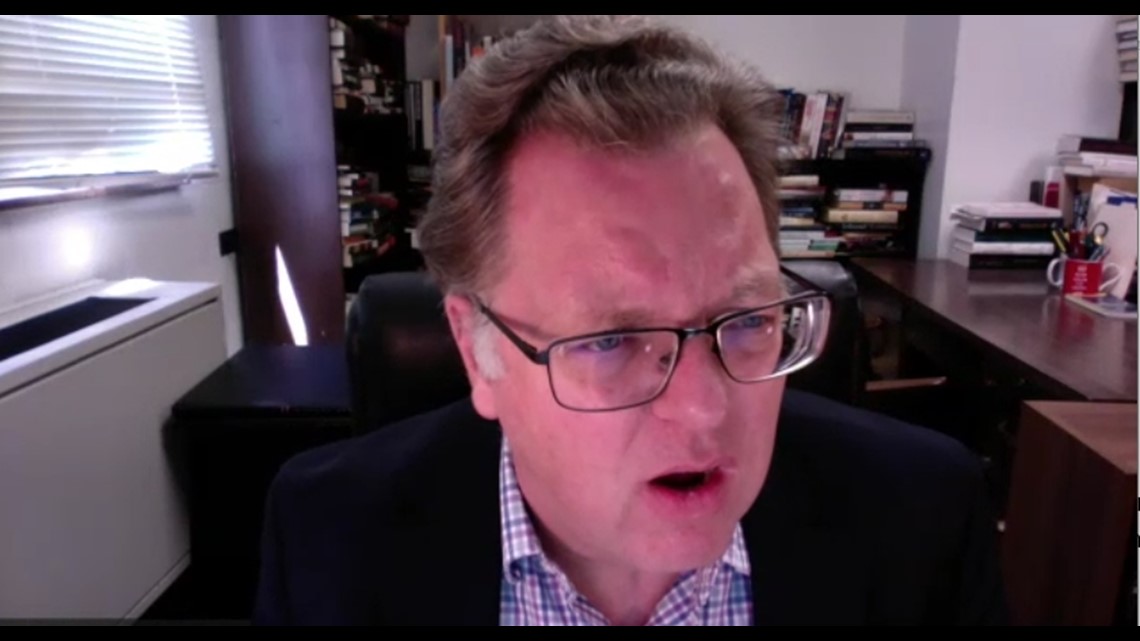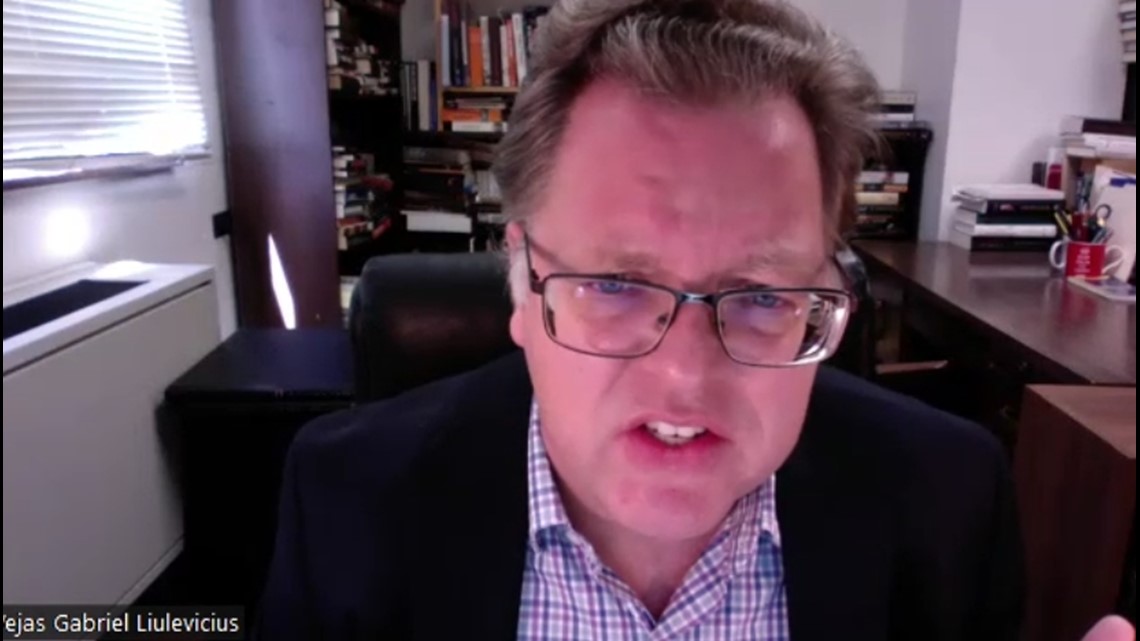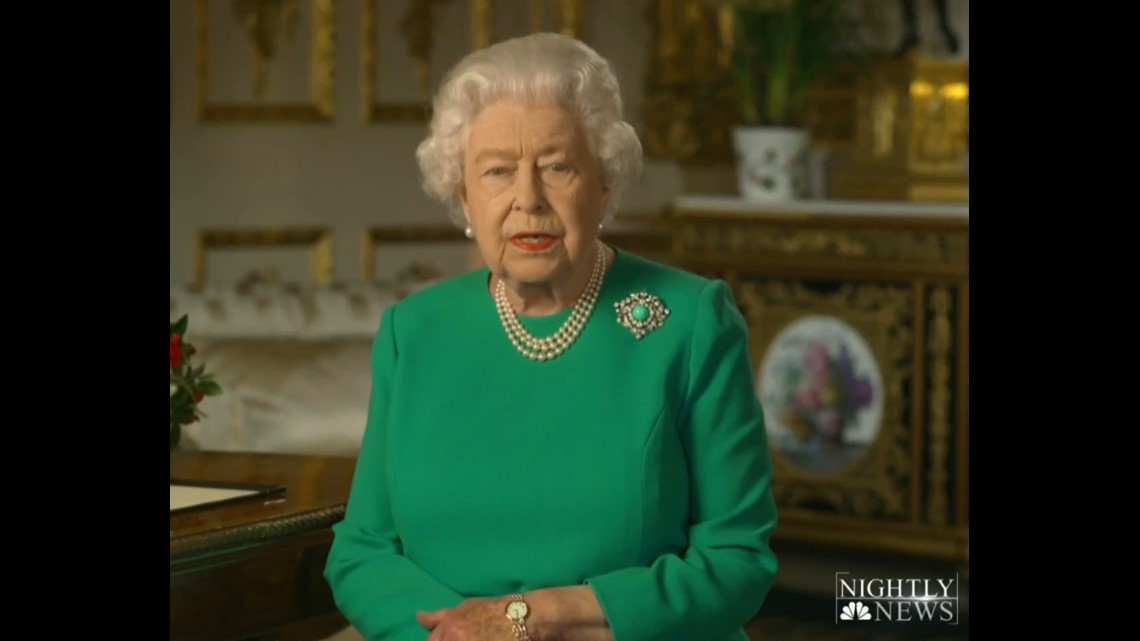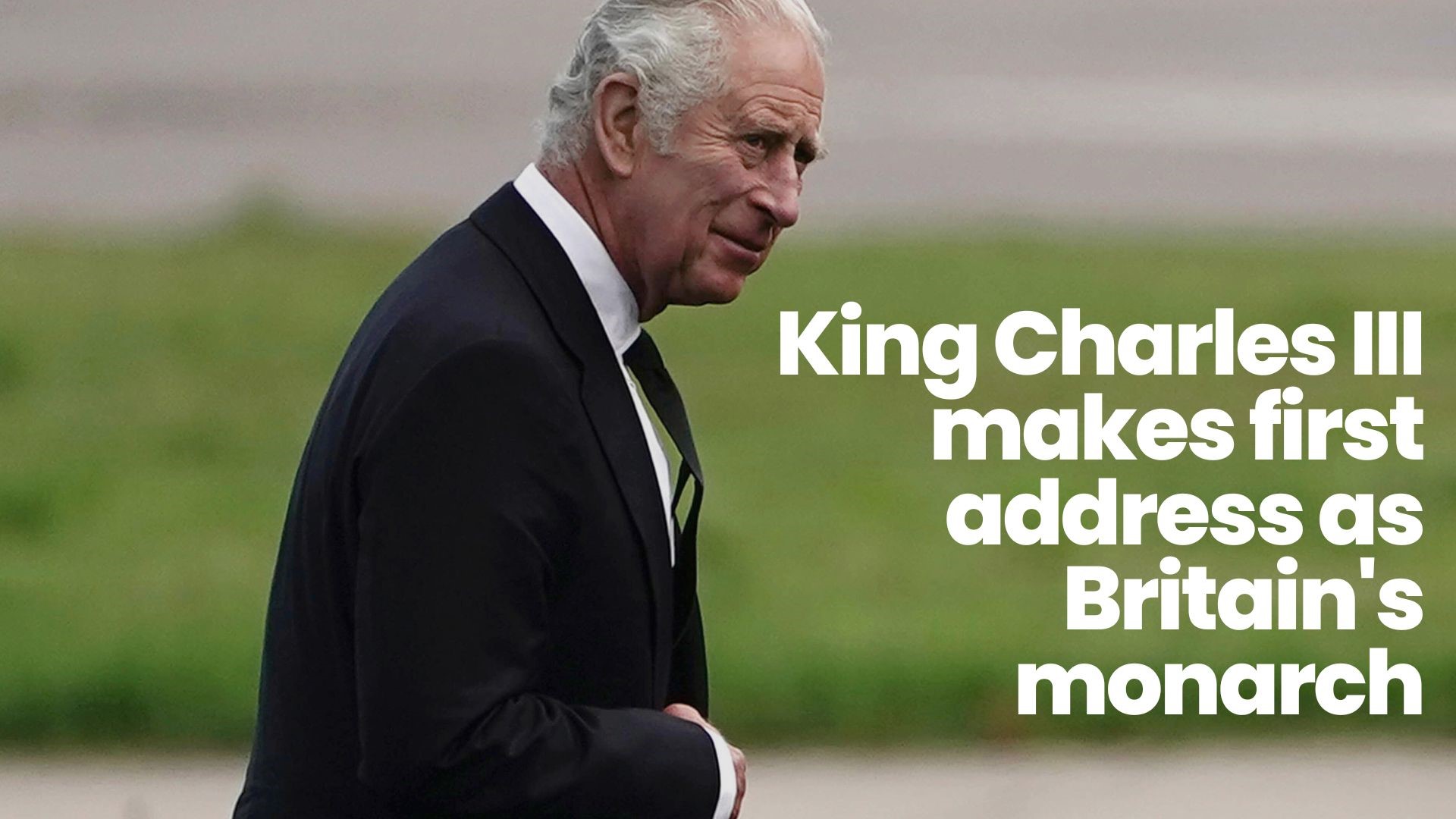KNOXVILLE, Tenn. — History couldn't have become more meaningful or relevant for one University of Tennessee undergraduate class when Queen Elizabeth II died Thursday afternoon.
Students of Professor Vejas Gabriel Liulevicius are studying the history of modern European monarchy. Right before their eyes, one of the longest reigning monarchs passed, making way suddenly for the ascension of her own son.
It's sad. But it's also remarkable, Liulevicious said.
"The reason that it’s so rewarding to be doing this right now is because as you go further in time those monarchies go away," he said. "But the British monarchy has survived. When we get to the end of the semester and we talk a lot about Queen Elizabeth and read a biography of her life and discuss what it all meant, that‘s going to be the culmination of where we are right now. That promises to be very interesting."


It's also very intriguing for Royal watchers and for many in the Western Hemisphere. Americans have been fascinated for generations about what happens within the Royal Family, even as we hold our federal republic dear.
Elizabeth was the second-longest reigning European monarch in history when she died at age 96 at her summer home in Scotland, Balmoral Castle. Louis the XIV of France, also known as the Sun King, was the longest -- claiming 72 years on the throne when he died in 1715.
"She provided stability and a sense of continuity for 70 years. How many people can say something like that?" Dr. Liulevicius said.
Her oldest child, Charles, age 73, became king and is to be crowned at a later date, following his mother's funeral.
Elizabeth rose to become queen in February 1952 following the death of her father, George VI from cancer in London.
To Liulevicius, she was very much a modern monarch. She was media savvy, for one thing.
"It’s been pointed out that she did something really amazing. As the monarchy lost its political power in the constraints of being a constitutional monarchy and being ultimately limited severely by Parliament really holding sovereignty, she nonetheless turned the monarchy into a media phenomenon.
"And she managed to speak to people not only in the United Kingdom but around the entire Commonwealth and won so many admirers inside the Commonwealth as well."
From the start she saw the value of television, still in its relative infancy in the early 1950s and a form of communication some didn't care for.
"This started from the very beginning of her reign when she underwent the coronation in 1953," he said. "It was the first time that the event had been televised. There were people at the time like (Prime Minister) Winston Churchill who were terrified that televising and broadcasting this event would make it lose its charisma, it would sap it of its magic."
The queen figured out quickly how easy it was to address her subjects -- in a manner she wanted. Her annual Christmas Day messages became legendary in the United Kingdom.
"She became a media monarch, able to address millions on a global scale like no one had ever done before. I think that character for being a master communicator in addition to her amazing restraint in limiting her role to make herself even more effective—that’s what we’re going to remember her for."


Liulevicius said he'll be paying close attention to how Charles III makes his own statement as king. Does he carry on as someone who could be outspoken, or does he conform more to the formal, muted duties of office?
"He’s spoken out on politics and social issues in ways that were actually quite controversial in the last decades, but that was in a different role – as the prince of Wales. This will be really riveting, I think, to watch how he fares in the transition."
Another aspect of his reign: Just how long will he stay on the throne?
"One thing that people have speculated about is what the length of this new reign will be. Whether King Charles III will continue for a long time or whether as his energy perhaps declines with age whether he decides to make a decision, as other European monarchs have, to resign to step aside and to make way.
"All of this is going to be part of the human drama that we’re all going to be following intently.
The drama of royalty continues to transfix us -- the way a mortal human being suddenly has so much weight, circumstance, pomp and tradition thrust upon them when they become a monarch. That person has to steer followers through expectations, hopes, even resentments and hostility.
"All of that, I think, is going to still capture our imagination regardless of whether we see royalty and monarchies as a going concern or something really old fashioned and archaic," the professor said.
By happenstance, his students this fall are getting a front-row seat to history.



